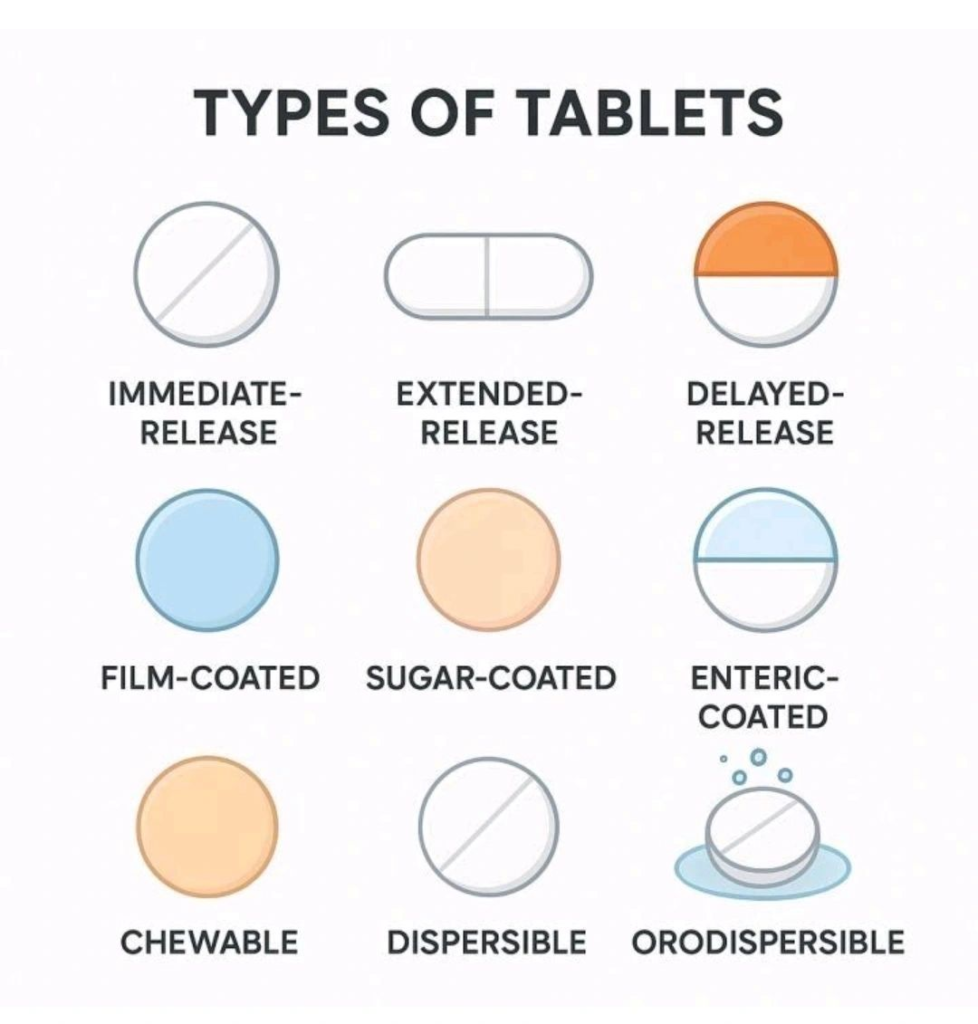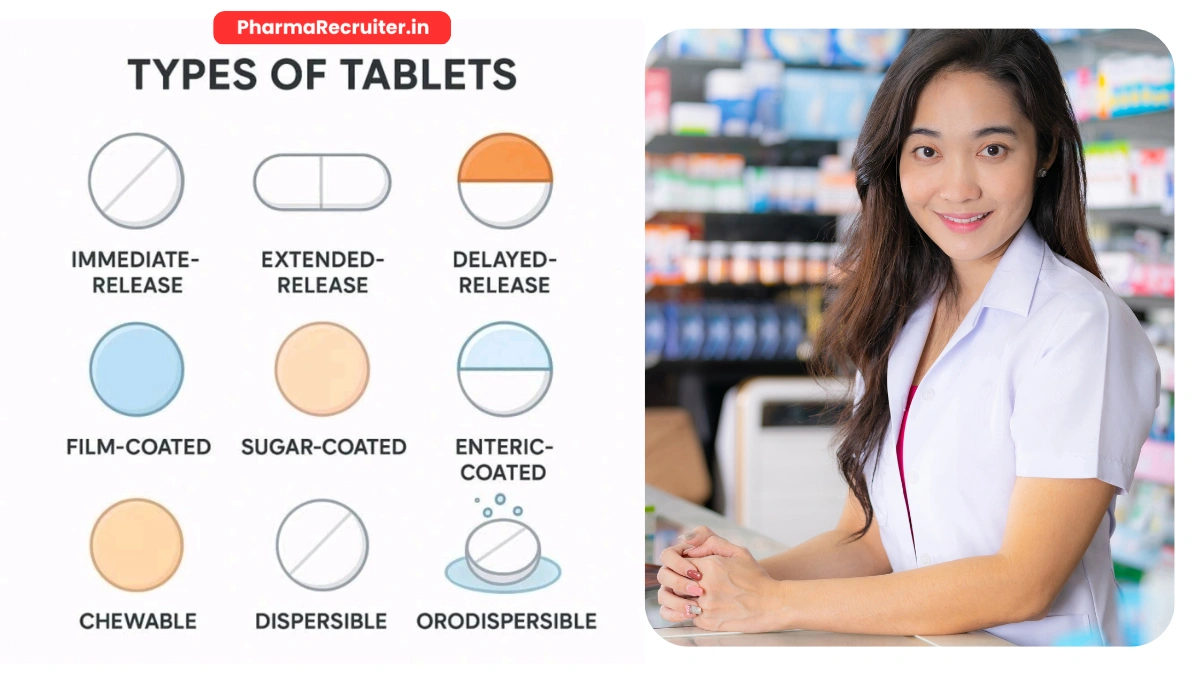When it comes to medication, not all tablets are created equal. Understanding the different types of tablets can help you get the most benefit from your treatment and make your healthcare journey smoother. Here’s a simple guide to the most common tablet types you may encounter:
1. Immediate-Release Tablets
- How they work: Dissolve quickly in the stomach, releasing the medication right away for fast relief.
- Best for: Conditions that need quick action, like pain or fever.
2. Extended-Release Tablets
- How they work: Release medication slowly over time, providing a steady effect and reducing the need for frequent dosing.
- Best for: Chronic conditions like hypertension or diabetes.
3. Delayed-Release Tablets
- How they work: Release medication at a specific time or location in the digestive tract, often to protect the stomach or target the intestines.
- Best for: Drugs that can irritate the stomach or need to act in the intestines.
4. Film-Coated Tablets
- How they work: Have a thin coating to mask taste, make swallowing easier, and protect the drug from moisture.
- Best for: Patients sensitive to taste or who need easier swallowing.
5. Sugar-Coated Tablets
- How they work: Covered with a sweet coating to improve taste and appearance.
- Best for: Children or those sensitive to bitter tastes (not suitable for people monitoring sugar intake).
6. Enteric-Coated Tablets
- How they work: Special coating prevents dissolution in the stomach, releasing the drug in the intestines.
- Best for: Medications that can irritate the stomach or are best absorbed in the intestines.
7. Chewable Tablets
- How they work: Designed to be chewed, not swallowed whole, and often flavored.
- Best for: Children, elderly, or anyone who has trouble swallowing pills.
8. Dispersible Tablets
- How they work: Dissolve in water to create a drinkable solution.
- Best for: Patients who cannot swallow tablets or prefer liquid medication.
9. Orodispersible Tablets
- How they work: Dissolve quickly on the tongue, no water needed.
- Best for: On-the-go use or for those who have difficulty swallowing.
Why Tablet Type Matters
Choosing the right tablet type can:
- Improve how well your medication works
- Make taking your medicine easier and more comfortable
- Reduce side effects and protect your digestive system

Always consult your healthcare provider or pharmacist to find the best option for your needs.
For more information on medication types and how they work, visit trusted resources like MedlinePlus or the FDA Drug Index.
FAQs
Can I split or crush my tablets?
Not all tablets are safe to split or crush, especially extended-release or enteric-coated types. Always ask your pharmacist first.
Are sugar-coated tablets safe for diabetics?
Sugar-coated tablets may not be suitable for people who need to monitor their sugar intake. Consult your healthcare provider.
Why would I need an enteric-coated tablet?
Enteric-coated tablets protect your stomach and ensure the medication is released in the intestines, which is important for certain drugs.
Empower your health by understanding your medication options. The right tablet type can make all the difference!
